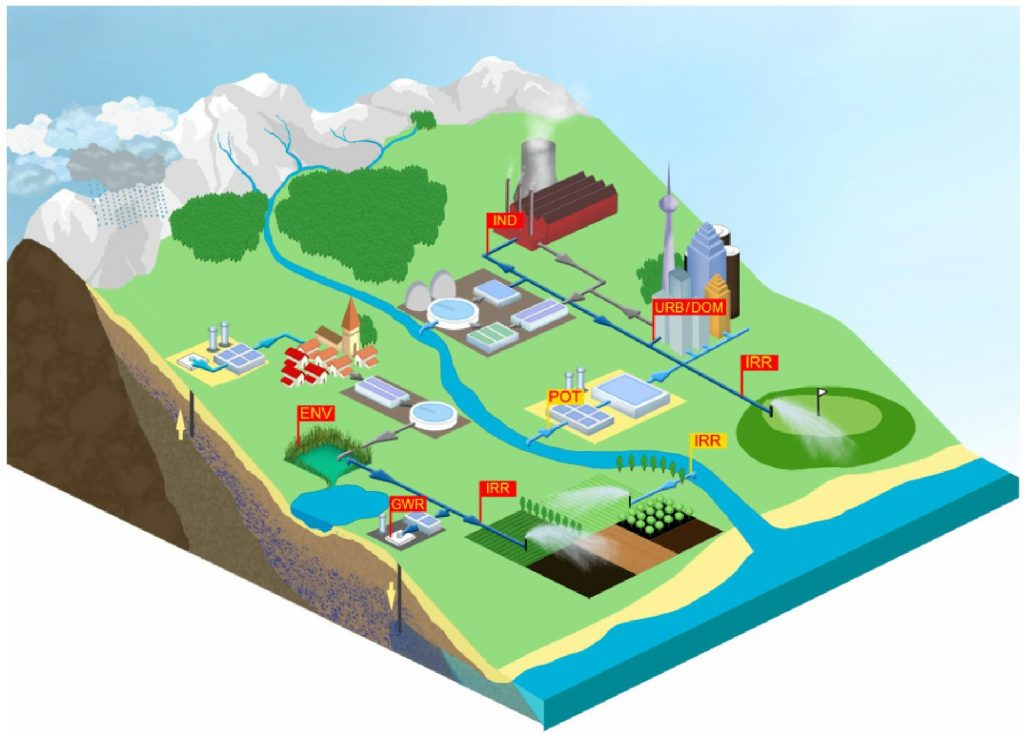Water scarcity is an issue in warm and dry areas. An emerging technology that is being discussed more frequently is agriculture water reuse. Agricultural reuse refers to re-using water that was already used for a different purpose in a new agricultural end use. Typical sources of water used in water recycling include municipal wastewater, processing plants for agricultural products, and runoff from fields after irrigation. The used water must be treated to meet a set of established water quality standards before it can be reused in agriculture.
Agricultural reuse has many benefits compared to standard irrigation practices. It encourages resilience in agricultural ecosystems since it provides a constant and reliable supply of freshwater that is independent of environmental factors like climate. Especially in drier areas, it reduces the need to import water from other places. Recycled water, which must be treated to meet the established standards before its end use, is also usually of higher quality than surface water used for irrigation. Agricultural reuse encourages the circular use of water in a closed loop, which reduces the need to continuously introduce water into the system.
In Alberta, the Public Health Guidelines for Water Reuse and Stormwater Use governs treatment requirements for agricultural reuse. The University of Calgary’s Advancing Canadian Water Assets (ACWA) partnered with Village Brewery and Xylem to create Alberta’s first beer made with treated wastewater. Important consultations with Alberta Health Services (AHS) helped ACWA treat the water to the required level, and AHS was able to develop a water safety plan that can be adapted for other water reuse applications as well [1].

Figure 1 legend:
| Acronym | Meaning | Acronym | Meaning | |
|---|---|---|---|---|
| GWR | Groundwater recharge | IND | Industrial reuse | |
| IRR | Irrigation | URB / DOM | Urban & domestic reuse | |
| POT | Potable reuse | ENV | Environmental enhancement | |
| Yellow highlight = indirect reuse, Red highlight = direct reuse | ||||
This phase of the project has been made possible by Nutrien, Enbridge, and Manulife Financial, along with the Government of Canada and the Government of Alberta through the Canadian Agricultural Partnership.
We provide Canadian educational resources on water practices to promote conservation and sustainability. Our team crafts current and relevant content, while encouraging feedback and engagement.
The Canada WaterPortal is a registered charity, #807121876RR0001
We recognize and respect the sovereignty of the Indigenous Peoples and communities on whose land our work takes place.
© 2025 All Rights Reserved.